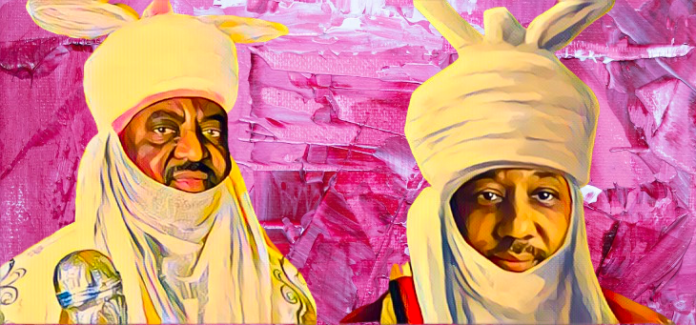A significant legal ruling is set for June 13 in the ongoing Kano Emirate crisis, with the Federal High Court in Kano expected to decide on its jurisdiction over the matter. The crisis, which has caused considerable tension within the state, centers on the creation of new emirates and the reduction of the Kano Emirate’s territory.
The conflict began in 2019 when the Kano State Government, under Governor Abdullahi Ganduje, established four new emirates: Bichi, Karaye, Rano, and Gaya. This move effectively reduced the influence and territorial span of the Kano Emirate, traditionally one of the most significant emirates in northern Nigeria. The creation of these new emirates has been a contentious issue, with many seeing it as a political maneuver to diminish the power of the then-Emir of Kano, Muhammadu Sanusi II.
Emir Sanusi, a prominent and outspoken figure, was later deposed in March 2020, further escalating the crisis. His removal was widely perceived as politically motivated due to his frequent criticism of the government. Following his deposition, legal battles ensued over the legitimacy and jurisdiction of the new emirates and the procedures followed in their creation.
The current legal proceedings involve a suit challenging the creation of the new emirates and questioning the jurisdiction of the Federal High Court to hear the case. Plaintiffs argue that the creation of new emirates and the subsequent actions taken by the state government were not only unconstitutional but also lacked due process.
The defendants, representing the Kano State Government, have contended that the court lacks jurisdiction over the matter, arguing that it is a state issue and should be handled within the state’s legal framework. They maintain that the creation of new emirates was done in accordance with the state’s laws and is within the governor’s constitutional powers.
The upcoming ruling on June 13 will determine whether the Federal High Court has the authority to preside over the case or if it should be transferred to a different jurisdiction. This decision is crucial as it will either pave the way for a detailed examination of the plaintiffs’ claims or potentially dismiss the case, reinforcing the state government’s position.
Legal experts and political analysts are closely watching the case, given its implications for the balance of power between state and federal jurisdictions, as well as its impact on the traditional authority structures in northern Nigeria. “The court’s decision on jurisdiction will set a significant precedent for how similar cases are handled in the future,” said Professor Abubakar Sadiq, a legal scholar. “It will also reflect on the broader issue of judicial independence and the interpretation of constitutional powers.”
The Kano Emirate crisis has drawn national attention, highlighting the intricate interplay between politics, tradition, and governance in Nigeria. The ruling will not only affect the immediate stakeholders but also signal the judiciary’s stance on the separation of powers and the protection of traditional institutions.
As the court prepares to deliver its verdict, stakeholders and observers hope for a resolution that upholds justice and fosters stability in Kano State. The ruling is expected to either validate the new emirates and the actions taken by the Kano State Government or call for a reconsideration of the processes involved in their creation.
The decision will likely influence future administrative and political actions regarding the establishment of traditional institutions in Nigeria. Regardless of the outcome, the ruling on June 13 will be a pivotal moment in the ongoing Kano Emirate crisis, potentially shaping the future governance framework within the state.
Source: BusinessDay.ng



